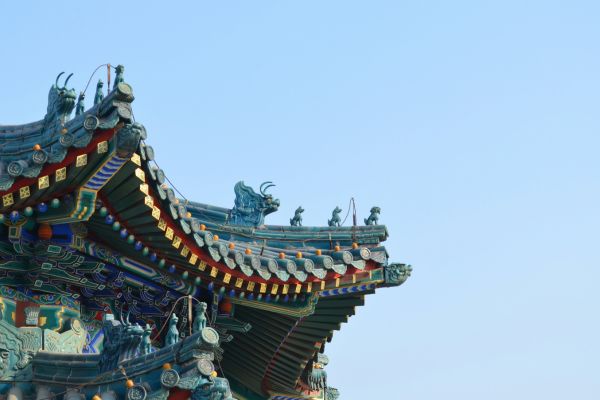
In September 2020, a conduct preservation order as equivalent to anti-suit injunctions was issued by a Shenzhen court in ZTE v. Conversant (2018), restraining Conversant from applying to the German court to enforce the German judgment.
On 28 Sept. 2020, in a standard essential patent (SEP) licensing dispute between ZTE and Conversant (See (2018) Yue 03 Min Chu No.335-1) ( ( 2018 )粤03 民初335号之一), pursuant to ZTE’s application, Shenzhen Intermediate People’s Court ruled to restrain Conversant from applying to enforce the German judgment before a final judgment was rendered in China.
Afterward, ZTE and Conversant reached a settlement.
I. Case background
In January 2018, due to a SEP licensing dispute between ZTE Corporation (“ZTE”) and Conversant Wireless Licensing Co., Ltd. (“Conversant”), ZTE filed a lawsuit with Shenzhen Intermediate People’s Court (“Shenzhen Court”) (Case No. (2018) Yue 03 Min Chu No. 335, “the Chinese litigation”) ( ( 2018 )粤03 民初335号).
ZTE is the largest manufacturer of communications equipment in China.
On 20 Apr. 2018, Conversant also filed a lawsuit based on the same patent family (“the German litigation”) concerning the licensing dispute of SEPs in the Düsseldorf Court in Germany (“the Düsseldorf Court”), alleging that ZTE and its German affiliates had infringed the patent.
On 27 Aug. 2020, the Düsseldorf Court issued a judgment of first instance (“the German Judgment”), prohibiting ZTE and its German affiliates from selling related products.
On 28 Aug. 2020, ZTE applied to the Shenzhen Court for conduct preservation, requiring the court to prohibit Conversant from applying for the enforcement of the aforementioned judgment of the Düsseldorf Court before the final judgment of the Chinese litigation was delivered.
On 28 Sept. 2020, the Shenzhen Court issued ruling the (2018) Yue 03 Min Chu No. 335-1 Ruling (( 2018 )粤03 民初335号之一), supporting ZTE’s request.
Prior to this, on 16 Sept. 2019, there was a similar SEP licensing dispute between Huawei and Conversant (the "Huawei Case"). In this case, the court of first instance, Nanjing Intermediate People’s Court, had ruled to determine FRAND royalty that Huawei should pay to Conversant. On 28 Aug. 2020, pursuant to Huawei’s application, the court of second instance, China’s Supreme People’s Court (SPC) restrained Conversant from applying to the German court to enforce a German judgment. (See Huawei v Conversant, (2019) Zui Gao Fa Zhi Min Zhong 732, 733 and 734 No 1.) The SPC’s landmark ruling became the first-ever conduct preservation order as equivalent to anti-suit injunctions in China’s IP-related litigations.
II. Court views
1. Impact of the application for enforcement of the German judgment on Chinese litigation
Once Conversant applies for the enforcement of the German judgment, it will most likely hinder the Chinese proceedings and the enforcement of the Chinese judgment, and thus make the proceedings and judgment of the Chinese litigation unnecessary.
2. Whether it is necessary for Shenzhen court to grant conduct preservation order
Once Conversant applies for the enforcement of the German judgment and obtains permission, ZTE will face only two options: either it will be forced to exit the German market, or it will be forced to accept Conversant’s offer for a settlement.
Should ZTE exited the German market, even if it files other lawsuits, it would be difficult to make up its market losses and the lost business opportunities financially.
Or, provided that ZTE has to accept Conversant’s patent licensing quotation due to the pressure of the German judgment, it will have to accept the rate which is ten times higher than that determined in the Huawei case. It will lead to the result that even if the Shenzhen court determines the Chinese rate in the Chinese litigation, it will not be enough to make up for ZTE’s losses in the German settlement. Therefore, ZTE is likely to be forced to give up the opportunity to obtain relief in the Chinese litigation.
Both of the above situations will make ZTE suffer irreparable damage, and therefore, it is indeed necessary and urgent to take conduct preservation measures in Chinese litigation.
3. The influence of conduct preservation order on the interests of both parties
For Conversant, if the Shenzhen court grants conduct preservation measures, the only damage is to temporarily suspend the enforcement of the German judgment. Considering that the German judgment is not final, the suspension of enforcement of the judgment will not affect Conversant’s other litigation rights in Germany.
Besides, Conversant’s core interest in the German litigation is to obtain financial compensation, so the suspension of enforcement of the German judgment will merely cause limited damage to Conversant.
After the comparison, not taking preservation of conduct measures obviously causes more damages. Therefore, it is reasonable to take such measures.
4. International Comity
Chinese litigation was accepted in January 2018, which was accepted earlier, given that the German litigation was accepted in April 2018.
The Shenzhen court prohibited Conversant from applying for the enforcement of the German judgment before the final judgment of this case was made. This approach will neither affect the following procedure of the German litigation, nor derogate the legal effect of the German judgment. It will only postpone the enforcement of the judgment and the trial of the German litigation. The influence of the trial and judgment on the German litigation is still within a moderate range.
III. Our comments
1. The first case of this kind in Guangdong Province
The case accepted by the Shenzhen court is the first case of a SEP anti-suit injunction (anti-enforcement injunction) in Guangdong Province. This case was also listed by Shenzhen Court as one of its five major intellectual property judicial protection innovation cases in 2020. The two largest communications equipment companies in China, Huawei and ZTE, are both located in Shenzhen, Guangdong. Therefore, the opinions of the Shenzhen court are significant for futures cases with Huawei and ZTE.
2. Subsequent settlement between the parties
After the Shenzhen court granted a conduct preservation order against Conversant, Conversant did not apply to the Düsseldorf court to enforce the injunction against ZTE. Instead, it negotiated with ZTE on the SEP license and eventually reached a FRAND license agreement between the two parties.
On 2 Nov. 2020, ZTE applied to the Shenzhen Intermediate Court to withdraw the case, and the dispute between the two parties was resolved smoothly.
The Shenzhen court held that its injunction not only protected ZTE’s legitimate rights and interests in accordance with the law, but also provided experiences for the Chinese courts to further explore and improve such an injunction system in the future.
Contributors: Guodong Du 杜国栋 , Liu Qiang 刘强









